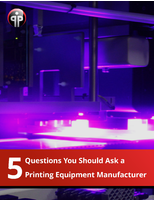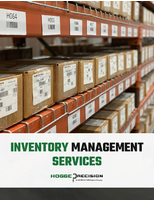Amcor Accelerates Industry Leadership Towards More Sustainable Packaging
- Marks three-year anniversary of landmark, industry leading pledge on recyclability
Zurich, Jan. 26, 2021 /PRNewswire/ -- Three years after leading the packaging industry in embracing the challenge of having all of its packaging be reusable or recyclable by 2025, Amcor is today laying out its roadmap to continue to meet and accelerate its sustainability aspirations.
Amcor is applying a three-pronged approach to creating a responsible, more sustainable packaging system. The company is innovating products to be recycled or reused, collaborating with others to make recycling widely available and informing consumers about how to participate in keeping waste out of the environment.
Innovating
Amcor invests $100m every year in research and development (R&D) to ensure a world-beating pipeline of innovations that tackle the biggest technical and practical barriers to packaging. This commitment to R&D has produced remarkable results: just this year Amcor released its new AmLite HeatFlex solution for retort packaging – the world's first recyclable pouch for goods such as pet food and microwaveable soups.
More broadly, the impact on Amcor's portfolio can be seen in its sales, with $7.7bn and growing in Amcor revenue generated from packaging that meets recyclability guidelines.
Highlights include:
- AmPrima™ recycle ready solutions – a portfolio of more sustainable packaging solutions, available in a wide range of formats
- Eco-Tite R – the first recyclable shrink bag for meat and cheese
- AmLite Recyclable – new and recyclable, metal-free packaging for a range of food and healthcare applications
- Significant improvements in the use of post-consumer recycled (PCR) content in rigid packaging, including the commercialisation of many 100% PCR solutions and more than 100 million pounds of recycled content being used annually over the last four years
Where technology already exists, Amcor works to increase sustainability related features – such as reducing weight, which decreases the product's CO2 impact – and offers customers alternative solutions. The company also produces packaging made from multiple materials – including paper and paperboard, aluminium and resins – so that more and more of our packaging is recyclable wherever the right infrastructure is in place.
Collaborating
Just like the most innovative mobile devices do not reach their full potential without 4G or WiFi networks, effective waste management infrastructures are critical to prevent packaging from ending up in the environment. Where governments have dedicated the right attention, governance and attention to recycling infrastructure, positive outcomes for the environment have been achieved.
To address this issue at scale and improve consistency of infrastructure across the world, Amcor collaborates with expert groups to run pilot programs, align standards, and advise on how to expand and improve waste management and recycling infrastructure so that more that can be recycled is recycled.
Highlights:
- Amcor's work with Materials Recovery for the Future (MRFF) – to promote recycling of flexible packaging in the US
- Work with CEFLEX (A Circular Economy for Flexible Packaging) – to develop recycling infrastructure for flexible packaging in Europe
- EMF Project Barrier – Amcor is a leading member of this initiative to develop a global design-for-recyclability standard for packaging traditionally seen as difficult to recycle
Informing
Amcor works with its customers to improve consumer understanding and participation in recycling and reuse. Company research has revealed consumer confusion regarding recycling labels – which impacts recycling rates. Through product innovation, Amcor is also increasing its use of PCR and post-industrial resin (PIR) – which proves the effectiveness of recycling to consumers and reduces the use of virgin plastic, despite a global shortage in PCR supply.
Highlights:
- Last year Amcor used 83,917 tonnes of recycled plastic resin (PCR), as it pushes for its target of 10% PCR across its portfolio by 2025
- Amcor's rigid packaging has been certified as 95% compliant with the Consumer Goods' Forum's industry leading design-rules to encourage recycling, with more and more of Amcor's packaging meeting these rules across all of our packaging
- L'Oreal – 86% PCR bottle for 'All Nighter' setting spray, which will save 46 tons of virgin plastic from being produced
David Clark, Amcor's Vice President for Sustainability said:
"The progress that we have made since we became the first packaging company to commit to the 2025 target is remarkable and is a tribute to Amcor's absolute focus on reducing waste and improving sustainability. Although we're not finished yet, our results to date speak for themselves – Amcor is still leading the industry and addressing the challenges of recyclability with innovation, collaboration, and information."
About Amcor
Amcor is a global leader in developing and producing responsible packaging for food, beverage, pharmaceutical, medical, home and personal-care, and other products. Amcor works with leading companies around the world to protect their products and the people who rely on them, differentiate brands, and improve supply chains through a range of flexible and rigid packaging, specialty cartons, closures, and services. The company is focused on making packaging that uses less materials, is increasingly recyclable and reusable, and is made with more recycled content. Around 47,000 Amcor people generate $12.5 billion in annual sales from operations that span about 230 locations in 40-plus countries. NYSE: AMCR; ASX: AMC www.amcor.com I LinkedIn I Facebook I Twitter I YouTube
www.amcor.com I LinkedIn I Facebook I Twitter I YouTube
Source Amcor
Contact:
Media queries: henry.brand@hkstrategies.com, +44 7825778122




